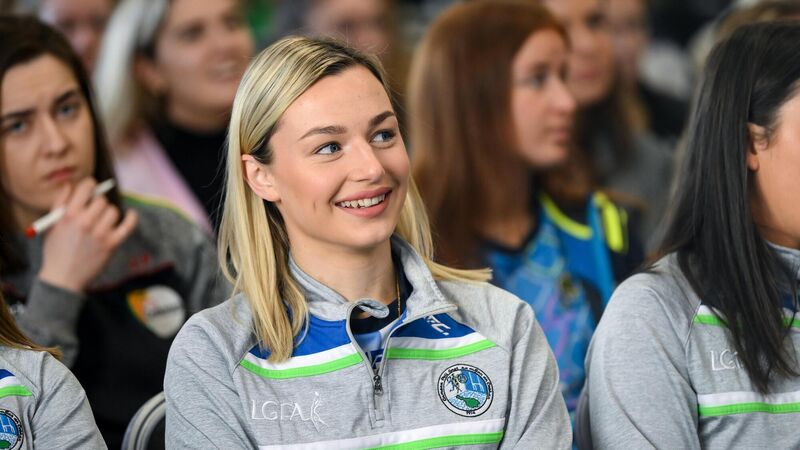Eimear Ryan: Let's hope the GPA is as tigerish with basic expenses for female players

4 March 2022; Players from all across Ireland were at the announcement of scholarship funding of close to 800,000 provided to inter-county players through the Gaelic Players Association. Pictured is Cavan ladies footballer Aisling Gilsenan during the announcement event at the Radisson Blu Hotel at Dublin Airport in Dublin. Photo by Stephen McCarthy/Sportsfile
It’s been a week full of faux pas in the world of women’s sports – or rather, faux pas against women’s sports. International Women’s Day should be an easy enough one for sporting organisations: an opportunity to spotlight the women in their ranks and garner plenty of goodwill at the same time. Some sporting bodies, however, didn’t quite understand the assignment, with both the FA and the All Blacks coming under fire for their IWD social media output – the FA for a lack of diversity, and the All Blacks for forgetting all about the Black Ferns and instead posting in praise of the male players’ wives, girlfriends and female support staff. Not that those women don’t deserve praise, but when a sporting body has clearly forgotten about its female wing, it becomes more than a little awkward.
Then, at the Critics Choice Awards last Sunday, a gaffe came from an unexpected source. Film director Jane Campion, currently enjoying reams of goodwill and Oscar buzz for her film , decided to undermine two of the most unquestionably great female athletes of all time: Venus and Serena Williams. The tennis legends were there in support of King Richard, the Will Smith vehicle about their coming of age under the guidance of their father, when they were unexpectedly dragged into Campion’s acceptance speech for best director: "Venus and Serena, you’re such marvels," she said. "However, you don’t play against the guys, like I have to." Venus’s frozen are-you-kidding-me grin is already an internet classic.









